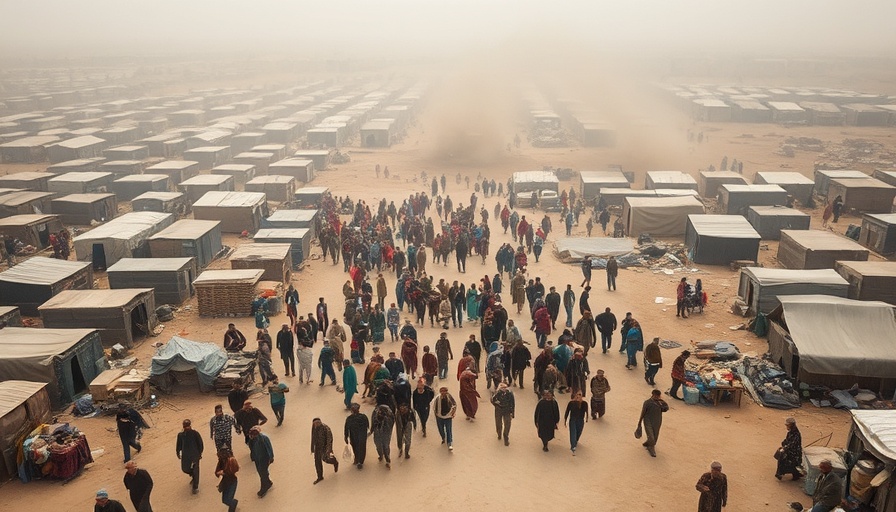
Understanding the Impact of Conflict: A Child's Perspective
In recent weeks, the world has shifted its gaze to the ongoing conflict between Israel and Hamas, a situation fraught with complexity and grave humanitarian implications. As violence escalates, its toll on children, particularly in Gaza, has become an urgent concern. With children representing nearly half of Gaza’s population, the psychological effects of ongoing military actions compound an already troubling history of trauma.
Children's Mental Health in Conflict Zones
Reports indicate that the mental health of children in Gaza has been deteriorating for years, a situation worsened by the current onslaught. Researchers have extensively documented alarming rates of trauma among this vulnerable group. According to recent findings, anywhere from 23% to 70% of these children face symptoms of post-traumatic stress disorder. The continuous exposure to violence leads not just to immediate emotional distress but to profound and long-term impacts on their development and worldview.
The Toll of Trauma: A Call for Global Awareness
The latest conflict, ignited on October 7, has reportedly caused over 10,000 Palestinian casualties, with thousands being children. The emotional fallout echoes well beyond the physical battlefields, leaving deep scars on young minds. Iman Farajallah, a psychologist who once lived in Gaza, emphasizes that as many as 4,000 children have perished, turning this region into a 'graveyard for children.' Research suggests that children who experience such trauma face lingering issues as they reach adulthood, including significantly heightened anxiety and a predisposition toward aggression.
The Role of Social Media: Navigating New Challenges
Beyond the realities facing children in conflict zones, the broader issue of children's cognitive skills and social media usage must be considered. Recent studies have highlighted the paradox of technology; while it offers opportunities for connection, it also presents challenges, such as addiction and social isolation. Research underscores the necessity of balanced digital consumption, particularly for adolescents, to foster healthy cognitive development. As children consume both news and entertainment through a variety of platforms, understanding these dynamics becomes crucial.
Educational Tools to Support Mental Resilience
In light of these challenges, educational initiatives aimed at promoting emotional intelligence and resilience among children are essential. Schools can play a pivotal role in integrating mental health education into their curriculum, especially in areas affected by violence. Simple practices like mindfulness and peer support programs can help children in these settings learn coping mechanisms and improve their overall mental health.
A Global Responsibility
The plight of children in Gaza and beyond calls for global awareness and proactive engagement. Recognizing their challenges is just the first step; the international community must rally to provide immediate humanitarian aid, psychological support, and long-term investment in peace-building initiatives. To ensure the safety and well-being of future generations, there is a pressing need for effective conflict resolution and comprehensive mental health resources.
Next Steps for Action
As the narrative surrounding the Israel-Hamas conflict unfolds, it is imperative that we remain vigilant about the stories of those most affected — the children. Advocacy for their rights and well-being must resonate in both our local communities and on the global stage. The world must act to safeguard these young lives from the devastating effects of violence, ensuring they not only survive but thrive in the face of adversity.
Only through awareness, understanding, and action can we address these urgent issues affecting our youngest and most vulnerable populations.
 Add Element
Add Element  Add Row
Add Row 



Write A Comment